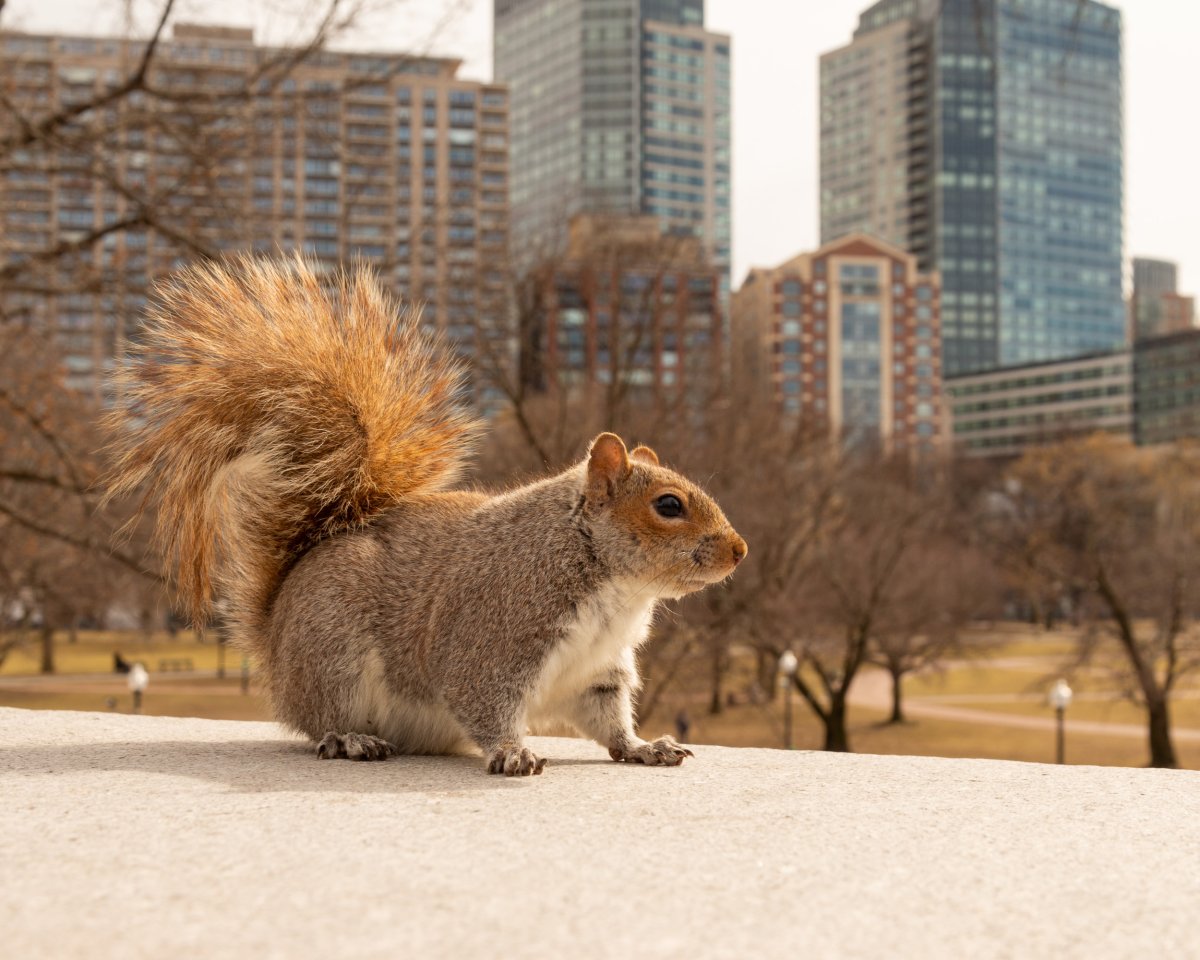Animal populations in cities are set to "change significantly" due to climate change, a new study has found.
The study, published in the journal Plos One, found that species in North America could see a huge turnover by the end of this century. Animals that may currently be commonplace could be replaced by entirely different species by 2100, they found.
This includes all species from the birds in your backyard to dogs.
"For people living in cities, the animals in their backyards and local green spaces are going to change significantly with climate change," the authors write in the study. "Over the next few decades, familiar species will be leaving the city and new species will be entering it, forever changing the composition of urban animals."

The research was led by Alessandro Filazzola of the University of Toronto Mississauga and Apex Resource Management Solutions in Canada.
To reach their findings, researchers studied 2,000 animal species that are most commonly found in 60 of North America's most populous cities.
They used online databases made by citizen science initiatives to get a grasp on the animal species sightings in each. They then used machine learning to predict the ideal conditions for each species and how the surrounding environments may change under three different scenarios relating to carbon emissions and climate change. They then calculated what this may look like by 2100.
Urban biodiversity was predicted to experience a drastic turnover by 2100 in nearly all cities studied.
Cities that had high biodiversity were predicted to see the biggest declines, as well as being less likely to gain new species. Cities that tend to be colder and wetter may see a higher number of new species. This includes cities such as Omaha and Kansas City.
During their research they found that Quebec, Ottawa, and Winnipeg in particular could see a doubling of the amount of species living there.
They predict that warmer cities with higher precipitation levels such as coastal areas of California may lose the most species overall, while arid cities like Phoenix and Albuquerque may not see a great shift. This is because these cities already have fairly resilient ecosystems.
Birds and insects appear to be the most vulnerable species to turnover. The study found that over 95 percent of bird and insects species would experience some sort of change in how many cities they live in.
Aquatic birds, amphibians and canines may also see the greatest loss. Turtles, mice, toads and pelicans may become more common across all cities.
Citizens that stay in the same city for a lifetime "will likely observe changes in the species that occur around them," the study reported.
This study, and future research on this topic, could provide valuable information on how society can curb greenhouse gas emissions and protect biodiversity.
Climate change is causing many issues for local ecosystems, as environments and habitats continue to change.
Do you have a tip on a science story that Newsweek should be covering? Do you have a question about wildlife? Let us know via science@newsweek.com.
Uncommon Knowledge
Newsweek is committed to challenging conventional wisdom and finding connections in the search for common ground.
Newsweek is committed to challenging conventional wisdom and finding connections in the search for common ground.
About the writer
Robyn White is a Newsweek Nature Reporter based in London, UK. Her focus is reporting on wildlife, science and the ... Read more
To read how Newsweek uses AI as a newsroom tool, Click here.








